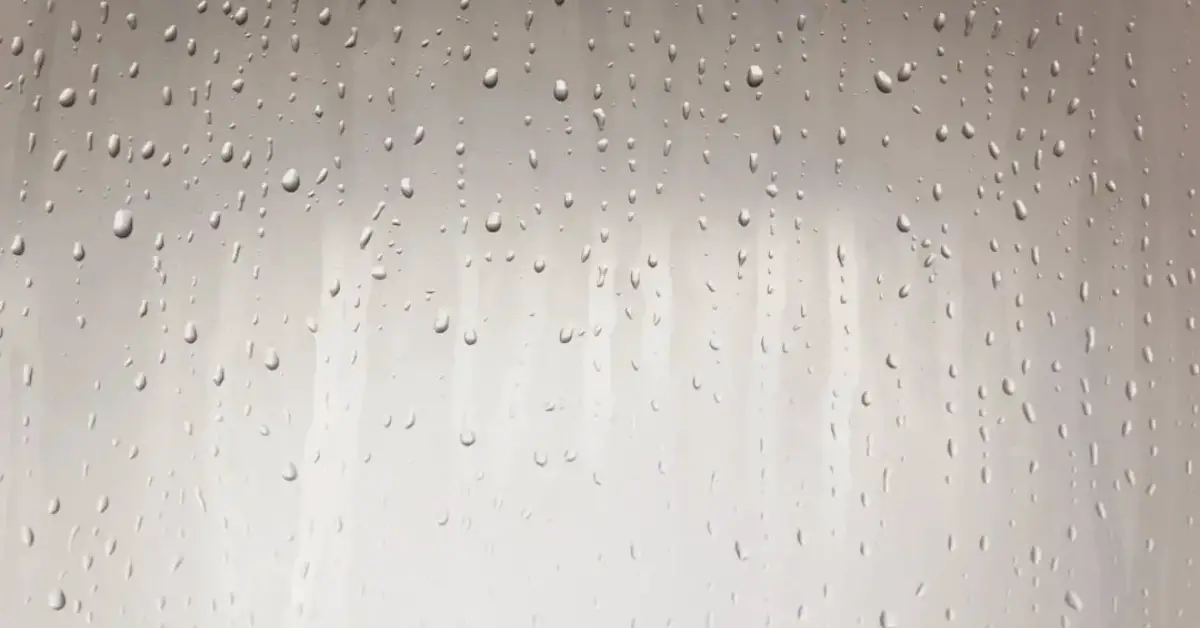Yes, projector screens can get wet, but it is not recommended as it can damage them. Protect your projector screen from moisture to ensure its longevity and optimal performance.
Avoid exposing it to rain or water to prevent any potential harm. Moisture can negatively impact the screen’s material and functionality, leading to costly repairs or replacements. Whether it’s an indoor or outdoor screen, taking precautions to keep it dry will help maintain its quality and lifespan.
Let’s explore the importance of protecting your projector screen from water damage and how to prevent it effectively.
Table of Contents
The Vulnerability Of Projector Screens To Water
Projector screens are designed to provide a high-quality visual experience for presentations, movies, and other forms of media. However, their vulnerability to water is often overlooked. Whether it’s due to accidental spills, inclement weather, or improper storage, projector screens can be negatively impacted by moisture. In this article, we’ll explore the impact of moisture on screen materials and the common issues associated with wet projector screens.
The Impact Of Moisture On Screen Materials
Projector screens are typically made from materials such as vinyl, fabric, or specialized coatings. These materials are susceptible to damage when exposed to moisture. Water can cause these materials to warp, stain, or develop mold and mildew. Additionally, the metal components of some projector screens can rust when exposed to water, leading to structural damage and potential malfunctions.
Common Issues With Wet Projector Screens
- Image Distortion: Moisture can cause the screen material to warp, resulting in distorted images and compromised visual quality.
- Mold and Mildew: The presence of moisture can create an environment conducive to the growth of mold and mildew, leading to health hazards and permanent damage to the screen.
- Electrical Damage: Water exposure can lead to electrical short-circuiting in motorized projector screens, rendering them inoperable.
- Decreased Lifespan: Persistent exposure to moisture can significantly reduce the lifespan of a projector screen, necessitating premature replacement.
Types Of Projector Screens And Water Resistance
Differences Between Indoor And Outdoor Screens
Indoor projector screens are typically designed for use in controlled environments, such as homes, offices, or classrooms. They are not exposed to the elements and are not specifically engineered to withstand moisture or extreme weather conditions. On the other hand, outdoor projector screens are purpose-built to endure outdoor environments, including exposure to rain, humidity, and temperature variations.
Material Composition And Durability
Projector screens are constructed from various materials, each with its own level of water resistance. For example, outdoor screens often feature weather-resistant fabrics such as vinyl, PVC, or special coated materials. These materials are chosen for their ability to repel water and resist mold and mildew growth. In contrast, indoor screens may be made from materials that prioritize visual quality over water resistance, such as smooth matte white fabric or glass bead surfaces.
Protecting Your Screen: Preventive Measures
Using Covers And Enclosures
When it’s not in use, keeping your projector screen protected from moisture is crucial. One effective way to achieve this is by using covers and enclosures. These specialized protective materials act as a barrier against water and humidity, safeguarding your screen from potential damage.
Proper Storage Solutions
Storing your projector screen properly is essential in preventing it from getting wet. Consider investing in a durable storage case or container specifically designed for projector screens. This will shield your screen from exposure to moisture and ensure its longevity.
Weatherproof Projector Screens: A Worthwhile Investment?
Weatherproof projector screens are a smart investment, offering durability against moisture. Concerned about wet conditions? Opt for a weatherproof screen for worry-free outdoor entertainment.
When it comes to investing in a projector screen, the last thing you want to worry about is damage caused by unexpected weather. After all, a projector screen is not a cheap investment and you want to make sure it lasts a long time. But can projector screens get wet? The answer is yes, they can. However, weatherproof projector screens are a great solution to protect your investment from rain, wind, and other weather elements.Features Of Weatherproof Screens
Weatherproof projector screens are designed to withstand harsh weather conditions and provide a reliable projection surface in any environment. These screens are made with materials that are resistant to water, mildew, and UV rays. Some of the key features of weatherproof screens include:- Water-resistant material that prevents damage caused by rain or splashes of water
- Mildew-resistant material that prevents the growth of mold and bacteria
- UV-resistant material that prevents fading and discoloration caused by exposure to sunlight
- Sturdy construction that can withstand wind and other weather elements
Comparing Costs Vs. Benefits
While weatherproof projector screens may be more expensive than regular screens, they are a worthwhile investment in the long run. With a weatherproof screen, you can enjoy outdoor movie nights without worrying about damage to your screen. You can also use it for outdoor events, presentations, and other activities without the fear of weather damage. Moreover, a weatherproof screen can save you money in the long run as you won’t need to replace your screen frequently due to weather damage. In conclusion, weatherproof projector screens are a great investment that can provide you with years of reliable use in any weather condition.Maintenance Tips For Prolonging Screen Life
To prolong the life of your projector screen, it’s crucial to keep it dry at all times. Moisture can damage the screen’s fabric and affect its performance. Remember to store the screen in a dry place and avoid exposing it to water or humidity.
Regularly inspect and clean the screen to maintain its quality and longevity.
Projector screens are a crucial aspect of any home theater system. It’s essential to ensure proper maintenance of projector screens to guarantee a long lifespan. One of the primary concerns is whether projector screens can get wet. Accidents happen, and it’s not uncommon for liquids to spill on the screen. In this section, we’ll discuss maintenance tips for prolonging screen life, with a focus on cleaning techniques for water exposure and routine care for enhanced longevity.Cleaning Techniques For Water Exposure
If your projector screen gets wet, it’s essential to take immediate action to prevent any damage. The first step is to turn off the projector and disconnect it from the power source. Avoid using any cleaning agents or solvents on the screen, as they can cause more damage. Instead, use a soft, lint-free cloth to gently dab and absorb any excess moisture.Routine Care For Enhanced Longevity
To ensure the longevity of your projector screen, it’s crucial to practice routine care. Here are a few tips to keep your screen in good condition:- Regularly dust the screen with a microfiber cloth to prevent the accumulation of dirt and debris.
- Avoid touching the screen with your bare hands, as this can leave oil and dirt residue.
- Store the screen in a dry, cool place when not in use to prevent moisture damage.
- Be mindful of the environment where the screen is installed. Avoid placing it in direct sunlight or near any heat sources.
Rescue And Repair: Salvaging A Wet Projector Screen
Rescue and Repair: Salvaging a Wet Projector Screen
Immediate Steps After Water Contact
Quick action is crucial when a projector screen gets wet. First, disconnect the power source to prevent electrical damage. Next, gently blot the screen with a soft, absorbent cloth to remove excess moisture. Avoid rubbing the screen, as this can cause further damage. Finally, allow the screen to air dry in a well-ventilated area.
Professional Repair Options
If the screen has sustained significant damage, seeking professional repair services may be necessary. Qualified technicians can assess the extent of the damage and recommend the best course of action. Repair options may include screen replacement or specialized treatments to restore the screen’s functionality.
Technological Advances In Projector Screen Fabrication
Technological advances in projector screen fabrication have revolutionized the way we experience visual media. Innovations in material science have led to the development of water-resistant projector screen surfaces, addressing the concern of whether projector screens can get wet.
Innovations In Water-resistant Materials
Modern projector screens are constructed with advanced water-resistant materials, making them suitable for outdoor and high-moisture environments. The integration of specialized coatings and fabrics enhances the durability and longevity of projector screens, ensuring they remain unaffected by occasional exposure to water.
Future Trends In Screen Manufacturing
The future of screen manufacturing is poised for further advancements in water-resistance. Ongoing research and development efforts are focused on creating even more robust and resilient materials that can withstand prolonged exposure to moisture without compromising visual quality or structural integrity.
Case Studies: Success Stories Of Durable Projector Screens
Case Studies: Success Stories of Durable Projector Screens
Outdoor Cinemas And Their Screen Choices
Outdoor cinemas have become increasingly popular, but the success of these events heavily relies on durable projector screens that can withstand various weather conditions. Choosing the right screen is crucial to ensure a seamless viewing experience. Let’s explore some case studies of outdoor cinemas and their screen choices.
Personal Experiences With Resilient Screens
Personal experiences with resilient screens showcase the importance of investing in high-quality, weather-resistant projector screens. Real-life stories of individuals and businesses using these screens can provide valuable insights into their durability and performance. Let’s delve into some compelling success stories.
Making The Right Choice: Selecting A Durable Projector Screen
Ensuring your projector screen is durable is crucial to prevent damage and maintain optimal viewing quality. When selecting a projector screen, focus on key features that enhance durability and performance.
Key Features To Look For
- Material: Opt for screens made from moisture-resistant materials like vinyl or fiberglass.
- Coating: Look for screens with water-resistant coatings for added protection.
- Seam Sealing: Ensure the seams are sealed to prevent water seepage.
- Warranty: Choose screens with a warranty that covers water damage.
Recommended Brands And Models
| Brand | Model |
|---|---|
| Elite Screens | Elite Screens Spectrum Series |
| Silver Ticket Products | Silver Ticket STR Series |
| Carl’s Place | Carl’s Place ALR Series |
Conclusion: Balancing Durability With Performance
To protect projector screens from moisture damage, it’s crucial to strike a balance between durability and performance. Avoid exposing screens to direct water contact, opting for water-resistant materials or retractable screens for added protection against moisture. Regular maintenance and proper storage can prolong the lifespan of your projector screen.
Final Thoughts On Water Resistance
Projector screens can be damaged if they get wet, affecting their performance and lifespan.
The Future Of Projector Screen Technology
Innovations in projector screen technology aim to enhance water resistance without compromising image quality.
Frequently Asked Questions
Can You Leave A Projector Screen Outside?
No, it’s not recommended to leave a projector screen outside as it can get damaged by weather conditions.
Can I Wash A Projector Screen?
Yes, you can wash a projector screen using a mild detergent and water solution. Gently wipe the screen in a circular motion, then dry it with a soft cloth. Avoid using harsh chemicals or abrasive materials to prevent damage.
Can You Use A Projector Screen Outside During The Day?
Yes, you can use a projector screen outside during the day for brighter and clearer images.
Are Outdoor Movie Screens Waterproof?
Yes, outdoor movie screens designed for all-weather use are typically waterproof and can withstand rain.
Conclusion
To sum up, protecting projector screens from moisture is crucial for their longevity. Whether using outdoor or indoor, prevent exposure to rain or spills to avoid damage. Regular maintenance and keeping screens dry will ensure optimal performance and durability. Remember, a little care goes a long way in preserving your investment.

